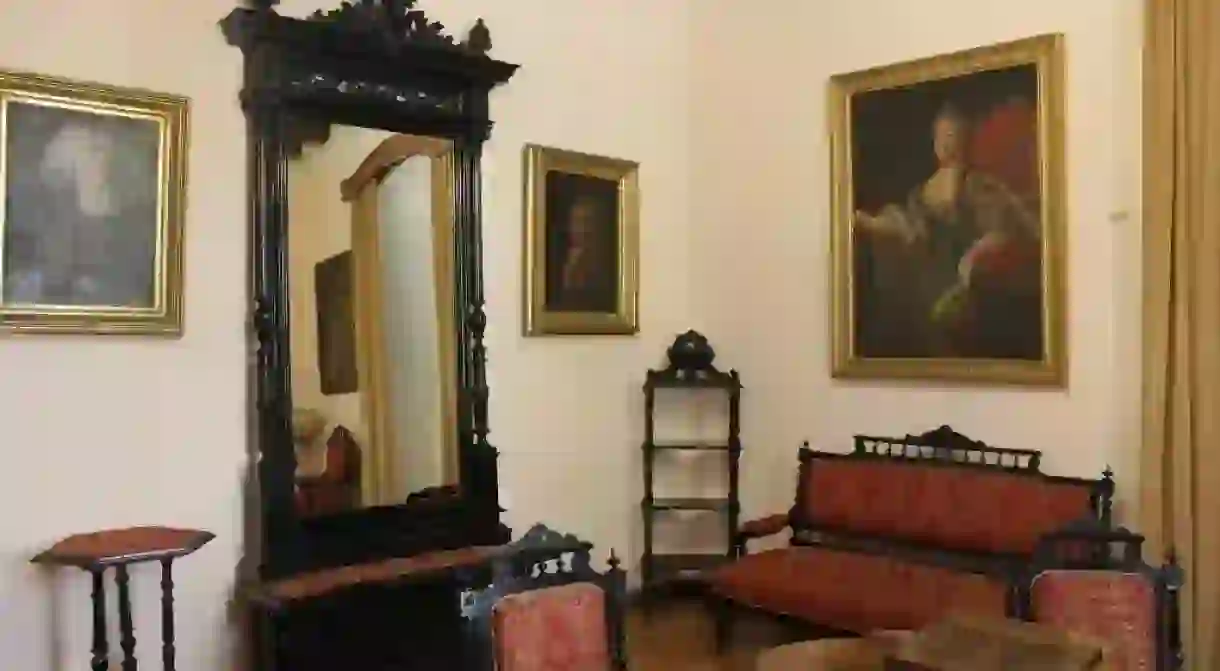The Best Museums in Montenegro

Montenegro is a country rich in history and culture. Monuments of Montenegrin past are placed in every part of the country, giving travelers a chance to get to know the real spirit of Montenegro in a very direct way. A visit to Montenegrin museums is a search for beauty, truth, and tales of heroes. Let us introduce you to the best museums in Montenegro.
Museum of Fine Arts, Cetinje
Art Gallery, Museum, Church, Library, Memorial

The Museum of Fine Arts is one the oldest and most respected institutions in Montenegro. Its mission is to study the development of fine arts; to collect, keep and exhibit works of artistic value; and, by an adequate selection of works, to offer the most comprehensive overview of the most significant achievements in fine arts. It has a permanent display of over 1000 artworks dating back to the 7th century, from Montenegro and the rest of the world and, the best part, it’s free to the public.
National Museum of Montenegro, Cetinje
Art Gallery, Museum, Church, Library, Memorial

The National Museum of Montenegro in Cetinje is a cultural institution made up of different museums and galleries, all of which are housed in buildings of immense historic and cultural importance. Included in this complex are the Museum of History and the Art Museum.
The Museum of History consists of the Mausoleum of Njegos on Lovcen, the court church of Cipur, the Mausoleum of Bishop Danilo on Orlov Krs hill, and the Relief of Montenegro among others. Also worth visiting is the Museum of Petar II Petrovic Njegos, which is housed in his former residence. Built in 1838, it became a memorial museum in 1951 to preserve the revered Njegos family heritage.The Art Museum consists of the modern art gallery Dado Djuric and the Ethnographic Museum, as well as the newly founded Archaeological Museum and Lapidarium.
King Nikola’s Palace has also been turned into a museum, and is now home to beautiful traditional costumes, old library rooms and elaborate sword displays, offering a fascinating view into the lives of the land’s past rulers. If all that sounds a bit overwhelming, fret not – you can get a joint ticket that will grant you access to the whole complex, so you can get an overview of everything.
The Museum of History consists of the Mausoleum of Njegos on Lovcen, the court church of Cipur, the Mausoleum of Bishop Danilo on Orlov Krs hill, and the Relief of Montenegro among others. Also worth visiting is the Museum of Petar II Petrovic Njegos, which is housed in his former residence. Built in 1838, it became a memorial museum in 1951 to preserve the revered Njegos family heritage.The Art Museum consists of the modern art gallery Dado Djuric and the Ethnographic Museum, as well as the newly founded Archaeological Museum and Lapidarium.
King Nikola’s Palace has also been turned into a museum, and is now home to beautiful traditional costumes, old library rooms and elaborate sword displays, offering a fascinating view into the lives of the land’s past rulers. If all that sounds a bit overwhelming, fret not – you can get a joint ticket that will grant you access to the whole complex, so you can get an overview of everything.
City Museum of Podgorica, Podgorica
Museum
The City Museum of Podgorica has a rich offering of artefacts and information, including historic archives, photographs, folk costumes, ornaments, weapons, daily objects, religious icons and other sacred artefacts. It is a fantastic way to learn about the most important periods, events and personalities in Podgorica history.
Maritime Museum, Kotor
Museum

The Bay of Kotor is a museum in itself, but the Maritime Museum is a worthy addition. Originally a Baroque palace belonging to a local noble family, today it is an amazing recall to the lives of Boka Bay seamen, starting in the 16th century and running all the way up to the present day.
Naval Heritage Museum, Tivat
Museum
The Naval Heritage Collection is housed in a beautifully restored building and showcases over 300 artefacts, from Austro-Hungarian ship equipment and industrial machines to the diaries of Montenegro’s Princess Ksenija. The main exhibits, however, are too big for the museum: the two Yugoslav navy submarines dry-docked outside.
Our Lady of the Rocks Catholic Museum, Perast
Our Lady of the Rocks is one of the two islands in Perast (the other being Sveti Dorde Island). It is an artificial island, created by a bulwark of rocks and by old, sunken ships that have been seized and loaded with rocks. The Roman Catholic Church is the largest building on the little island and has a museum attached.

Polimlje Museum, Berane
Museum
The Museum of Polimlje in Berane was established in 1953 as a regional museum complex for the territory of Gornje Polimlje. The museum holds a number of impressive collections, such as archaeological, ethnographic, artistic, numismatic, heraldic, natural, and photographic. According to the current records, these collections hold more than 4500 items, while its expert library division holds some 3000 books.
Budva Museum, Budva
Library, Museum

The Gallery, Library and Museum of Budva represent a treasure of cultural history. The exhibits display artifacts from the various Illyrian, Greek, Roman, Byzantine and Slavic peoples who have settled throughout the centuries in Budva.
Homeland Museum, Bar
Museum
The Homeland Museum in Bar is housed in King Nikola’s Palace, built in 1885. It was used as a summer residence for the dynasty and now displays items from various historic periods: prehistory, ancient times, the Middle Ages, the period of Turkish dominance, and the reign of King Nikola.
Ulcinj Cultural Center, Ulcinj
Art Gallery, Mosque, Museum
The Ulcinj Cultural Center is a group of three buildings, including a mosque and the Balsica Tower, which has been turned into an art gallery. The collection in the museum features a wide range of artefacts from the various groups who have settled in Ulcinj, from prehistoric times through Greek, Roman and Turkish rule.













